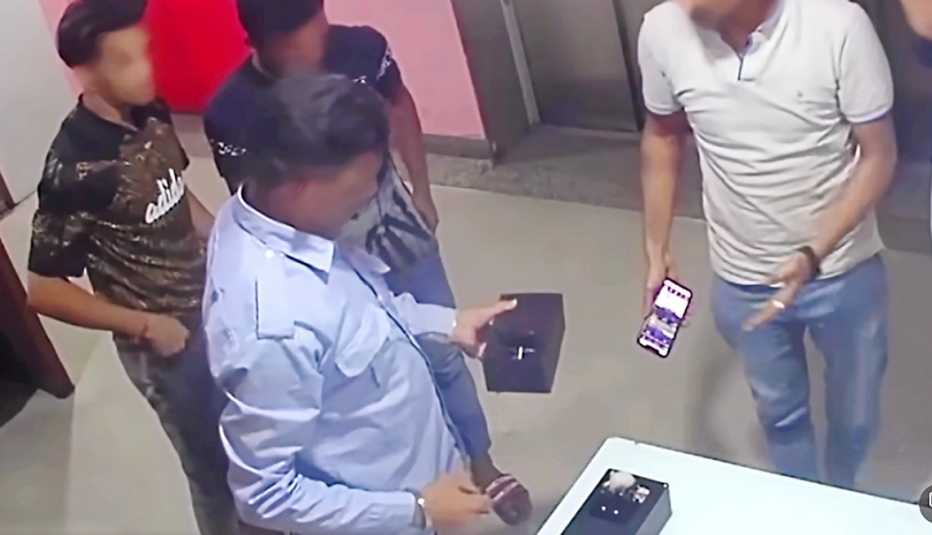AARP Hearing Center
File this story in the “be careful whom you mess with” folder.
When thieves took an Amazon package off a California front porch in 2018, they had no idea whom they were stealing from. It was Mark Rober, a former NASA engineer-turned-YouTube superstar famous for his ingenious science videos, such as creating an Olympic-level obstacle course to keep squirrels out of his bird feeders (it’s been viewed some 99 million times).
“I felt super violated” by the theft, Rober recalls. (Ironically, the package had contained a $5 combination lock.) “I thought, If anyone is going to do something about this, it should be me. I helped put rovers on Mars. I can stop packages from getting stolen.”
So Rober, 42, rigged a package with a hidden camera he could monitor and a “bomb” inside that exploded into a cloud of glitter when it was opened. Then he waited for a crook to steal it. The resulting video of a porch pirate getting glitter-bombed has been watched some 88 million times and greatly raised the issue among consumers and law enforcement.
Rober’s anti-crime crusading could have ended there; he’s worked on other stunts like filling a pool with gelatin to see what a belly flop would feel like (117 million people have watched that one). But instead, the episode opened his eyes to the broader issues of consumer fraud. So he set his ambitions higher: to take on illicit call centers in India that often target older Americans.
His most recent mission took 18 months to plan and execute.
Working with other YouTube fraud vigilantes (including Jim Browning, the pseudonym of a Northern Irish fraud fighter profiled in the April 2021 issue of the AARP Bulletin, and Trilogy Media, two scam fighters who are based in Los Angeles), Rober designed intricate machines that, when triggered, would expel some scary stuff into a room.
The elaborate scheme worked: When the trap was sprung, a criminal call center in Kolkata, India, was overrun with cockroaches,rats, a noxious-smelling spray and glitter bombs. The resulting mayhem was captured on closed-circuit TV cameras that Rober’s team had hacked.
The surprise attack at least temporarily idled several scam call centers. The group shared its work with Indian officials, and the result, according to news outlets in India, has been multiple arrests.
The Bulletin talked with Rober about his adventures in crime fighting and next steps.
How surprised were you at the vastness of the fraud industry?
Very. It was definitely more organized than I was anticipating — like with the money mules in the United States and how that was all structured. They have good technology and good training. This isn’t a rinky-dink setup.








































































